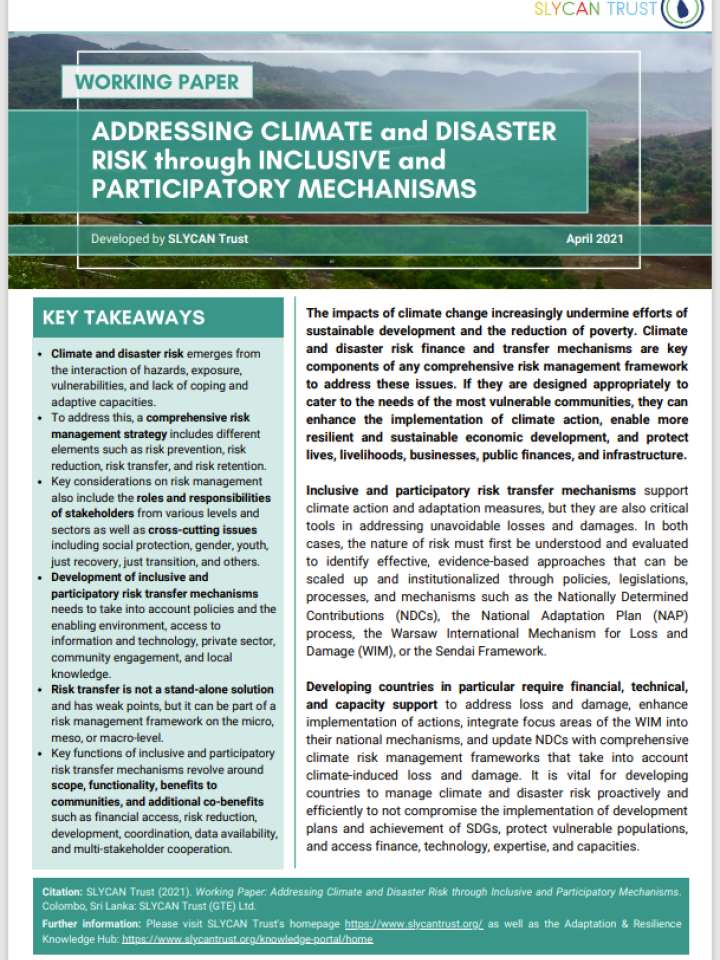Working paper: Addressing climate and disaster risk through inclusive and participatory mechanisms
This working paper provides a number of key takeaways on climate and disaster risk finance and transfer mechanisms including:
- key aspects of a comprehensive risk management strategy;
- roles and responsibilities of stakeholders; and
- essentials for the development of inclusive and participatory risk transfer mechanisms.
The impacts of climate change increasingly undermine efforts of sustainable development and the reduction of poverty. Climate and disaster risk finance and transfer mechanisms are key components of any comprehensive risk management framework to address these issues. If they are designed appropriately to cater to the needs of the most vulnerable communities, they can enhance the implementation of climate action, enable more resilient and sustainable economic development, and protect lives, livelihoods, businesses, public finances, and infrastructure.
The paper concludes that inclusive and participatory risk transfer mechanisms increase the predictability of climate-related losses and damages and allow for better planning. As part of a holistic risk management framework, they can act as a safety net for vulnerable populations and even as a precondition for sustainable development. Integrating multiple actors from the government side, the private sector, and civil society in all aspects of development and distribution will enable risk transfer to reach the most vulnerable segments of society and build awareness, capacities, and trust in the process.
Explore further
